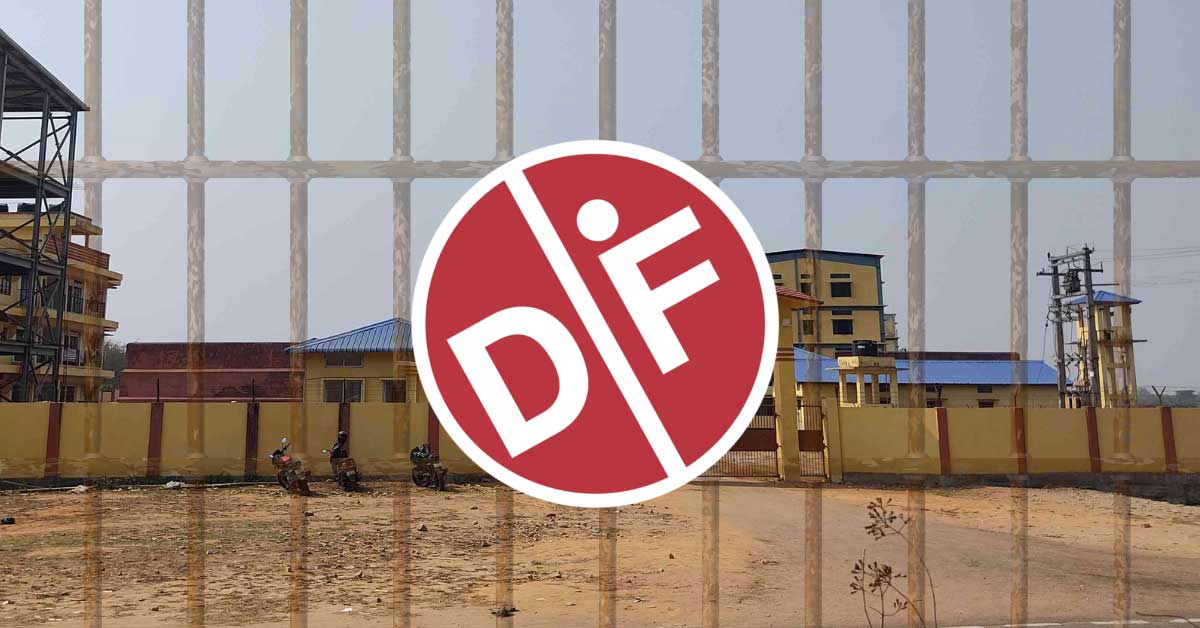On Monday, September 2, 2024, in Assam’s Barpeta district, 28 individuals—19 men and 9 women—were torn from their homes, ripped from the embrace of their families, and labelled “declared foreigners.” The pain of being forcibly taken away from your loved ones, with no certainty of reunion, is a heart-wrenching experience few can imagine. The anguish felt by their families, left behind to weep, plead, and watch helplessly, speaks to the cruel reality of such moments.
These individuals, all from the Bengali Muslim community, were summoned to the Superintendent of Police’s office under the pretence of signing documents on Monday. Instead, they were placed onto a bus bound for the infamous Matia transit camp in Goalpara district, 50 km away. The heartache of separation filled the air as the police bus carried away one member from each of the 28 families, leaving their loved ones crying in the streets.
The CJP Team on the ground was able to document these individuals being taken away.

The detainees were identified as:
- Keramat Ali
- Abdul Latif
- Kitab Ali
- Sirajul Haque
- Ibrahim Ali
- Hanif Ali
- Munjor Alom
- Ainal Mondal
- Shahadat Ali
- Sha Ali Akand
- Sonauddin
- Ramej Uddin
- Amjat Ali
- Based Ali
- Salam Ali
- Abdul Joynal Mir
- Shukur Miya
- Malam Miya
- Anowar Hussain
- Basaton Nessa
- Aimona Khatun
- Ajbha Khatun
- Sobiya Khatun
- Monowara Begum
- Jabeda Khatun
- Sufiya Khatun
- Raijon Begum
- Eyaton Nessa
The incident was part of a much larger and deeply unsettling process. As of August 22, 2024, data from the Assam Assembly reveals that over 54,411 people have been labelled as “declared foreigners” by Foreigners Tribunals (FTs) since 2005. The BJP-led government, under Chief Minister Himanta Biswa Sarma, has ramped up these detentions, recently inaugurating a permanent detention camp in Matia—the largest such facility in Asia—operational since January 27, 2023.
Previously, six temporary detention camps were scattered across Assam, located in Goalpara, Kokrajhar, Tezpur, Silchar, Dibrugarh, and Jorhat. Kokrajhar is the only one for women. The Matia camp, a sprawling complex, now serves as the main site for detaining individuals labelled as foreigners, often those arrested after rulings by FTs.
The Foreigners Tribunals, set up under the Foreigners Act of 1946, were meant to address illegal migration. Assam alone has around 100 tribunals, primarily to determine the status of “doubtful” voters and foreigners. These tribunals came into being following years of agitation by the indigenous Assamese population, concerned that illegal migrants from Bangladesh were threatening their identity and culture.
Amidst this, Citizens for Justice and Peace (CJP) has stepped in to provide legal aid, helping numerous detainees secure release and even overturning some tribunal decisions. Many detainees are released on bail or declared Indian citizens by the High Court, but the painful cycle of detainment and uncertain futures continues. The present tragedy in Barpeta struck a deep emotional chord, as families wailed and pleaded while their loved ones were dragged away. It is to be noted that the CJP Assam team had attempted to visit the Matia detention camp soon after the incident, but the authorities denied them entry and barred them from gathering information about the detainees’ conditions.
For the families, the separation felt on that fateful day was more than just a momentary loss—it was a fracture in the bonds of love, trust, and belonging.
Related:
Assam CM call to expel ‘Miya Muslims,’ leads to violence against Bengali speaking Muslim Labourers
Assam CM compares districts of Assam with Bangladesh; calls some of the districts ‘tiny Bangladesh’
12-year legal battle for identity: Rahim Ali’s posthumous victory in Assam’s citizenship tribunal
